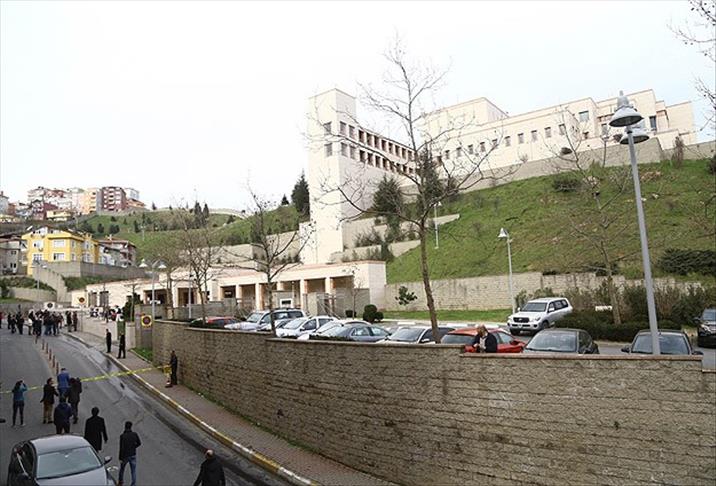
ISTANBUL
The woman suspected of participating in an armed attack on the U.S. Consulate General in Istanbul Monday and later apprehended by Turkish security forces, was identified as a member of the far-left Revolutionary People's Liberation Party-Front (DHKP-C).
According to police sources, 42-year-old Hatice Asik was designated as a potential suicide bomber candidate by the far-left group. Photos of Asik had been distributed to security units throughout the country after it was claimed that she had plans to commit a suicide attack on the Turkish Ministry of Justice in September of this year.
Asik had spent three years in jail but was released a month ago, on July 8, pending verdict in a trial in which she was a suspect, according to judicial sources.
She was being tried for her alleged involvement in a bomb attack on a police station in Istanbul’s Yenibosna district in 2012.
She was accused of willfully helping the DHKP-C, attempting murder and "attempting to change the constitutional order". She was one of six suspects being tried.
The attack on the consulate in the northern Sariyer district of Istanbul, in which no casualties have been reported, occurred early Monday morning.
Asik was wounded and then apprehended in a building near the consulate by security forces. Police are conducting a large-scale operation to find the second assailant.
According to an eyewitness, Engin Yuksek, a Sariyer district resident, the other assailant is also female.
Yuksek said police demanded that the suspects, who were carrying bags, surrender but one of them replied: “I will never surrender to you. We've come here to take revenge for Suruc [attack].”
The consulate in Istanbul has been closed to the public until further notice, said a written statement released on the consulate’s Twitter account.
The consulate attack came after another on a police station in Istanbul Monday morning, which killed one police officer and wounded at least 11 people, including four other police officers. The police officer, who was injured in the gunfight, died at the hospital. It has yet to be determined whether the two attacks are related.
U.S. diplomatic missions have been targeted by terrorist organizations in Istanbul and Ankara at least two times before in the past.
The DHKP-C, listed as a terrorist organization by Turkey, the U.S. and the EU, was also behind a suicide bombing at the U.S. embassy in Ankara in February 2013, which claimed the life of a Turkish security guard. The suicide bomber in the attack was identified as Ecevit Sanli, who was registered in northern Ordu province.
In 2008, gunmen attacked the U.S. Consulate in Istanbul's Istinye district on July 9, leaving three security personnel dead. Three assailants were also killed in the clash that broke out following the attack; two suspects -- Dursun Patan and Servet Cinar -- were prosecuted in the case for allegedly being members of Al Qaeda.
Last month, on July 20, a suicide bombing in Suruc, a southern Turkish town, killed 32 people who had been planning to engage in efforts to rebuild the Syrian town of Kobani after it was devastated by clashes involving Daesh.
The country has since witnessed a wave of bombings, shootings and arrests. Turkey has responded by arresting more than 1,300 suspected supporters of illegal groups, including Daesh, the PKK and the DHKP-C.
DHKP-C was also involved in the killing of a prosecutor, Mehmet Selim Kiraz, at a courthouse in Istanbul in March.
Anadolu Agency website contains only a portion of the news stories offered to subscribers in the AA News Broadcasting System (HAS), and in summarized form. Please contact us for subscription options.

